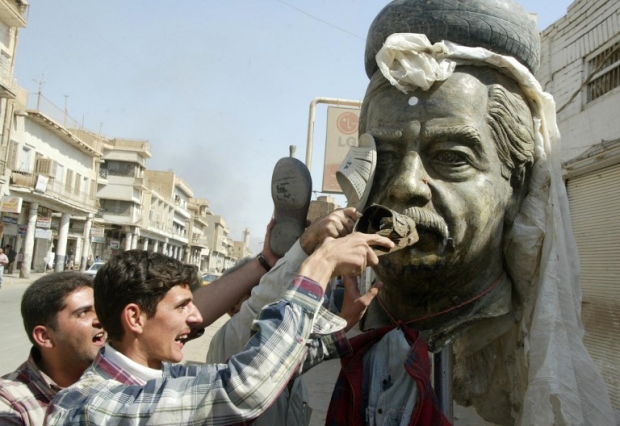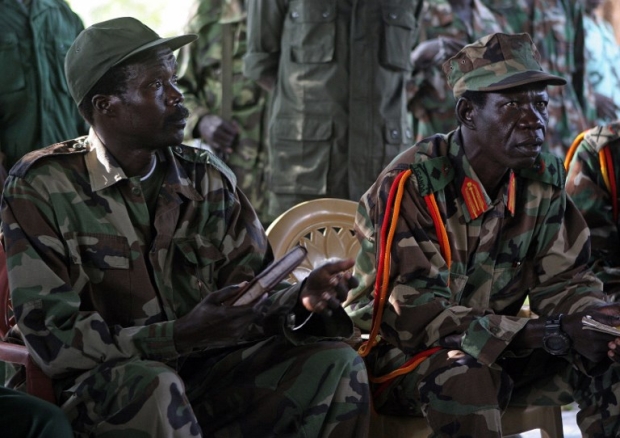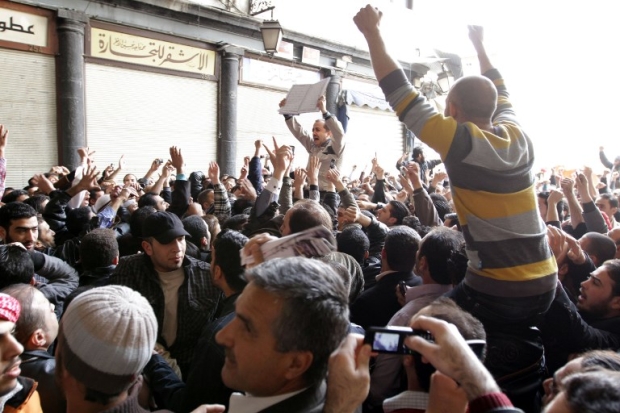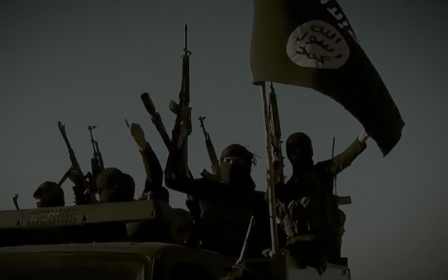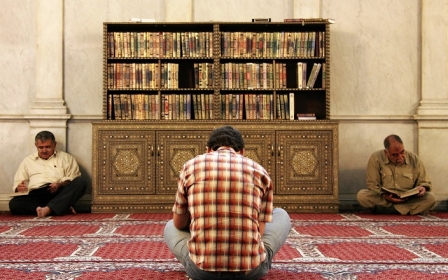IS comes from modern reality, not seventh-century theology
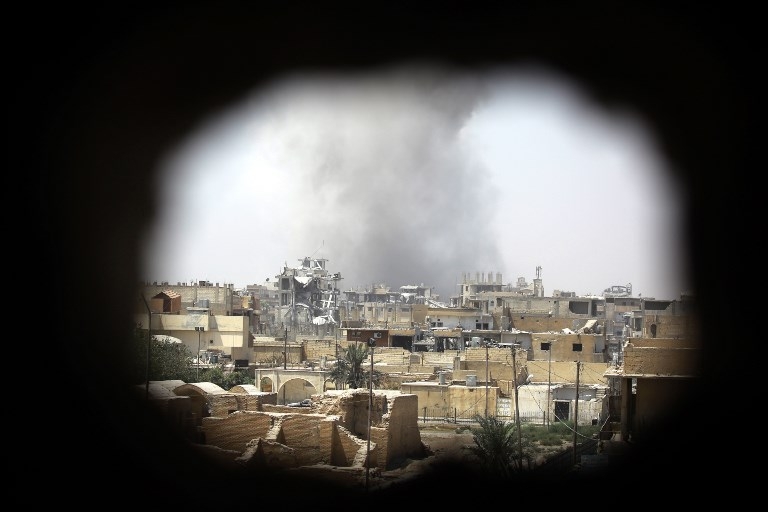
Last month, Peter Oborne published a lengthy and welcome rebuttal of Channel 4’s documentary Isis: The Origins of Violence. He sums up Tom Holland’s thesis (the author of the documentary) as “the extreme violence of self-proclaimed IS should be interpreted in significant ways as a manifestation of Islam itself". Oborne rightly accuses Holland of intellectual dishonesty, exposing the highly skewed selection of facts that he used to back up his thesis.
Are ideas, deprived of their context, the real driving force of history? Do they have a life of their own, or must they always be interpreted in the actual social context from which they emerged?
In a reply to Oborne, Dr Philip Wood, does not deny that most Muslims and scholars disagree with IS’s interpretation of Islam, but nevertheless affirms that IS does draw on a trend in Islamic thought.
Taken at face value, Wood is correct in the sense that IS does use Islamic language to express its aims and justify its crimes. His proposed solution is that Muslims should acknowledge that this particular trend of thought exists, and embark on a path of theological reform that would “embrace the more tolerant and liberal principles of their tradition".
By proposing a theological remedy to IS, Wood is implying that the genesis of IS is to be found in theology. In particular, he situates it in the narratives of the early history of Islam, when it expanded in the seventh century and spread from the Arabian Peninsula to today’s Syria, Iraq and Egypt. According to Wood, who cites the anecdotal evidence of children’s books he saw in Damascus, these ideas can be seen as “pre-propaganda”, creating a whole layer of young Muslims who are potentially receptive to IS's rhetoric.
READ:
Peter Oborne's original critique and Dr Philip Wood's rebuttal
In the light of Wood’s intervention, we may ask ourselves: is it true that a particular reading or interpretation of Islam (or any other religion) can be the motive behind IS’s emergence? In other words, are ideas, deprived of their context, the real driving force of history? Do they have a life of their own, or must they always be interpreted in the actual social context from which they emerged?
Putting ideology in its context
Ideologies and religious ideas in particular, with their often vague, catch-all formulations, are by definition open to a wide spectrum of interpretations depending on who does the interpreting, and where and when it is done. That is why any serious study of a political or military movement that claims religious legitimacy for itself must use the concrete material context, or social context, in which it emerged as a starting point.
But Wood does not bother with such precautions in his analysis of IS's use of Islamic rhetoric; he confuses IS's own propaganda with its essence, where it claims to come from with what it really represents.
The context in which IS was born is, of course, Iraq. More precisely, the Iraq shattered by successive wars, imperialist interventions and sanctions – all of which mainly hit ordinary Iraqis - under Saddam before the 2003 invasion by the US and their allies removed him from power.
Over the course of a decade, the occupation has finished destroying what remained of the social fabric of Iraqi society. It is in that context that a mosaic of militant armed groups emerged, and among them what would become IS, an elitist, mass-murdering military organisation that relies on apocalyptic religious rhetoric.
IS is not the first of its kind
Of course, the Iraqi context does not directly apply to the thousands of IS recruits from Europe - nor is it likely that they have read the Damascus books that Wood mentions.
Like IS, Joseph Kony's Lord's Resistance Army drew on apocalyptic religious propaganda, claiming to create a new social order based on the Old Testament’s Ten Commandments
Research suggests that their motivations are far from theological, ranging from a nihilistic outlook based on their own social condition to the combination of Islamophobia in Europe and imperialist wars in Muslim countries that created a sense of “Muslims being under attack”. There is no proven record of them being progressively “radicalised” by reading religious texts until they decided to join IS – one can recall the two British recruits who bought Islam for Dummies books after they had decided to join IS.
Outside of the Middle East, comparable contexts have given rise to groups similar to IS. Joseph Kony’s Lord's Resistance Army (LRA) emerged in the late 1980s in the Acholiland area of Uganda in response to sectarian massacres committed by president Yoweri Museveni’s National Resistance Army.
Can anyone seriously suggest that censoring the Bible’s Ten Commandments and “embracing the more liberal and tolerant aspects of Christian thought” would have avoided that catastrophe?
'What was already brewing'
The early history of Islam itself shows that ideas cannot gain traction unless they find a grip in contemporary social reality. In his magisterial Materialist Trends in Arab-Islamic Philosophy, activist and literary critic Hussein Mroueh writes: “The new religion (Islam), by its social content as well as its religious doctrine, emerged as an evolution of what was already brewing in the depths of pre-Islamic society; the latter was undergoing historical social transformations and consequently transformations in its philosophical and religious outlooks.”
The social transformations Mroueh refers to took place in the Arabian Peninsula where fragmented, nomadic and warring tribes were progressively accumulating wealth through their growing trade links with the Byzantine and Persian empires. Society began to take a more settled form and material conditions encouraged a different world view.
The ideas of Islam, with their monotheistic outlook and their much needed state-building project, could relate to those transformations, as British journalist and activist Chris Harman argues in A People's History of the World: “Islam was not simply a set of beliefs or rules for moral behaviour. It was also a political programme for reforming society, for replacing the ‘barbarism’ of competition, often armed, between tribes and ruling families, with an ordered Umma community based on a single code of laws.”
After they conquered the previously Byzantine provinces of Damascus and Alexandria, evidence which Mroueh wrote about shows that the new Muslim rulers were more concerned with building their state apparatus through tax collection and political alliances with the local Christian clergy (who were happy to be rid of their Byzantine rulers) than with the conversion of their new (largely Christian and Jewish) subjects to Islam. This is a concrete example of religious zeal, necessary in the phase of conquest, being restrained as it accommodated to the social and political necessity of constructing a state.
The religious splits in Islam also reflected social realities; for instance, the Shia sect emerged from the rebellion of Ali’s followers who, according to Mroueh, came largely from the urban poor against the new Muslim aristocracy who prospered under the third caliph, Othman. Both warring sides claimed to represent “true” Islam and pleaded their cause in the theological language found in the Quran. But only the social conditions present at the time could explain why this conflict emerged; indeed, Mroueh calls it the “first social revolution in Islam”.
Roots in conditions today
The above historical outlook does not aim to deny the role of religious ideology, but to subordinate it to human action. If the Prophet Muhammad's preaching found an echo at the time, it is because social conditions were ripe for the concrete project that Islam sought to embody.
If tens of thousands were ready to believe in IS's apocalyptic prophecies and engage in sectarian mass murder, it is because they grew up in a society that was already in decay, mined by decades of war, poverty and sectarianism. It is that reality which constitutes IS's bedrock.
It is not the first time nor the last that past legends are summoned back to legitimise a modern venture and reassure those who undertake it
The necessity to understand ideology within its social context also applies to other great religions. Friedrich Engels saw in early Christianity the religion of the slaves, the poor and the oppressed, even comparing it to the 19th-century socialist movement.
But that same religious language was used to provide ideological cover to the gross exploitation of peasants in Europe during the Dark Ages. The explanation lies not in a particular interpretation of Christian thought but in profound social changes: the upper layers of the clergy were now part of the feudal ruling class that had emerged from the ruins of the Roman Empire.
Decades of war, sectarianism and imperialist interventions have shattered the socioeconomic fabric of Iraqi society and allowed for the emergence of what eventually became known as IS. Similar conditions in Syria, although developing on a much shorter timescale, offered the opportunity for its military spread. The weapons used by the rulers to defeat the Arab revolutions, in which millions of ordinary people took action to transform their lives and offer a glimpse of a Middle East rid of local despotism and foreign imperialism, have sunk the region into further despair.
The remedy to IS and its likes certainly does not lie in some theological reform of Islam. Nor can it come from Western or Russian bombing campaigns supporting the armies of despots and sectarian militias. These only reproduce the conditions that gave rise to IS, and lay the ground for the emergence of some other monster.
- Jad Bouharoun is a Lebanese socialist activist and a writer.
The views expressed in this article belong to the author and do not necessarily reflect the editorial policy of Middle East Eye.
Image: Smoke rises from Raqqa in August 2017, as Syrian Democratic Forces (SDF), a US backed Kurdish-Arab alliance, battle to retake the city, Islamic State's de facto capital, from the militant group (AFP)
New MEE newsletter: Jerusalem Dispatch
Sign up to get the latest insights and analysis on Israel-Palestine, alongside Turkey Unpacked and other MEE newsletters
Middle East Eye delivers independent and unrivalled coverage and analysis of the Middle East, North Africa and beyond. To learn more about republishing this content and the associated fees, please fill out this form. More about MEE can be found here.



